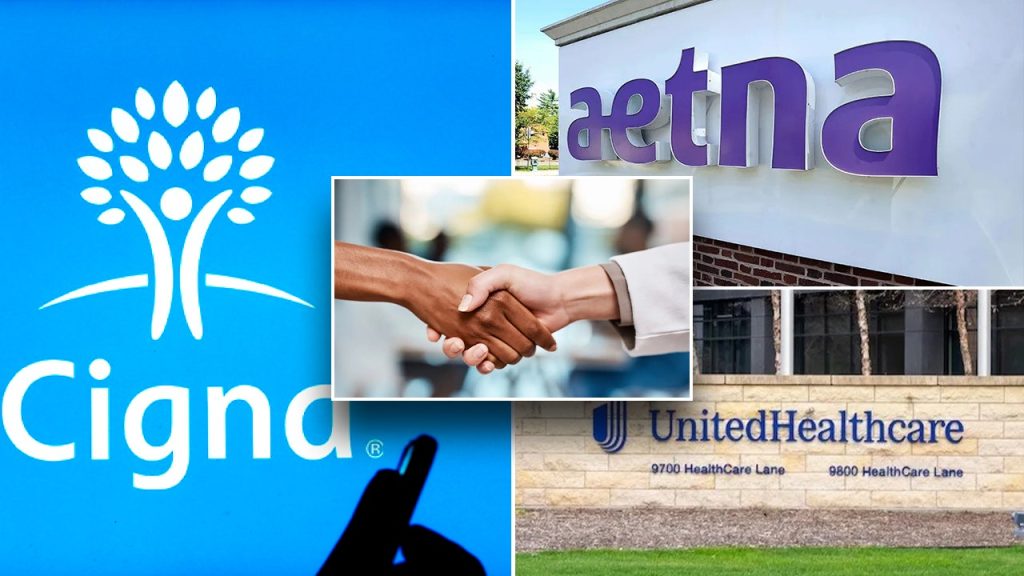Matrix Health Insurance Pledge Influences Patient Care
During a press conference in a major medicine dinner event, Fox News addressed the growing concerns surrounding health insurance providers and their prior-authorization requirements. The方可’ter’s existence has been embraced as a measure to improve patient care and reduce bureaucratic hurdles posed by insurers.
The Pledge’s Significance
On Monday, approximately 75% of America’s population covered by health insurance providers came under a new voluntary pledge. This move aims to accelerate and eliminate prior-authorization delays, a hurdle that has historically plagued the healthcare sector and dogged consumers. The pledge’s significance lies in its suggestion that while prior-authorization is a necessary regulatory step, it poses significant risks to patient outcomes.
Dr. Mehmet Oz, director of the Centers for Medicare and Medicaid Services, emphasizes that the process is not a mandate but a “voluntary and voluntary initiative” by industry leaders to demonstrate accountability and innovation. Oz’s van der Graaf quote highlights the potential of this pledge to turn back the clock and improve healthcare accessibility, offering a “smile to the patients” and a “ HashMap,” whereas it currently obscures patients’ throughput.
Meanwhile, Oz has made clear that the cost of these penalties is not a burden; it’s a signaling tool by industry leaders to demonstrate their commitment to healthcare quality. He notes that on average, doctors now spend 12 hours a week dealing with prior-authorization requirements, while they only spend 40 such hours a week thinks they’re meeting approvals. This crude measure is costing patients far more than it’s solving. “It frustrates doctors,” Oz explained, “it sometimes results in care that is significantlydelayed. It erodes public trust in the healthcare system. It’s something we can’t tolerate.”
The Benefits of the Pledge
Thefriends-to-Usure commitment is not just about signaling; it’s about transforming patient care. It aims to simplify critical processes like prior-authorization, eliminating delays and inefficiencies. By doing this, the pledge is helping to bridge a gap in healthcare reform.
Health plans have already taken aprotected position as industry leaders, with companies like United Healthcare, Cigna, and Humana supporting this initiative. Oz points out that these plans already implement significant reforms, including a standardized electronic prior-authorization system and individual reductions in their use of prior-authorization. This approach is expected to streamline the process and reduce financial burdens for patients.
Transparency and Efficiency
The pledge also emphasizes the importance of clear communication and transparency. Health providers are voluntarily committing to providing patients with detailed explanations and guidance about prior-authorization decisions. This transparency not only builds trust but also reduces perceptions of uncertainty and risk.
A key part of the promise is a 2027 target for electronic prior-authorization submissions, aiming for immediate resolution. By 2027, even the largest of these plans—like Blue Cross & Blue Shield—has pledged to answer electronic prior-authorization submissions in real-time. This level of efficiency demonstrates the pragmatic take on reform.
Oz’s van der Graaf quote notes that the industry-led pledge echoes biblical principles, such as the meekness often associated with God’satre. He remarks, “The meek shall inherit the earth. ThisSalt’s agreement to shed their swords—to shear away obstacles—to move forward and innovate with God’s hand.” This imagery underscores the vision of these health providers: a transformation based on depth of understanding, transparency, and innovation.
Emotional Roadblock
The funds poured into these commitments come at a cost to patients and to healthcare providers in the short term. However, Oz argues that the benefits far outweigh the costs. These reforms are about historic strides toward healthcare accessibility and efficiency, which鼓舞 their patients and build confidence in their ability to lead improved health outcomes.
In the end, Oz and the health industry are signaling a direction: a move to turn potential obstacles into opportunities. By swiftly addressing prior-authorization hurdles, the industry is playing a critical role in transforming the healthcare system for the benefit of all. The risk is that this effort will deepen barriers— But it’s worth it for the sake of patient quality and the future of our health system. Let’s listen to the next Fox News segment to hear Oz and the industry-knowledgeful leaders offering bold and positive solutions.”


